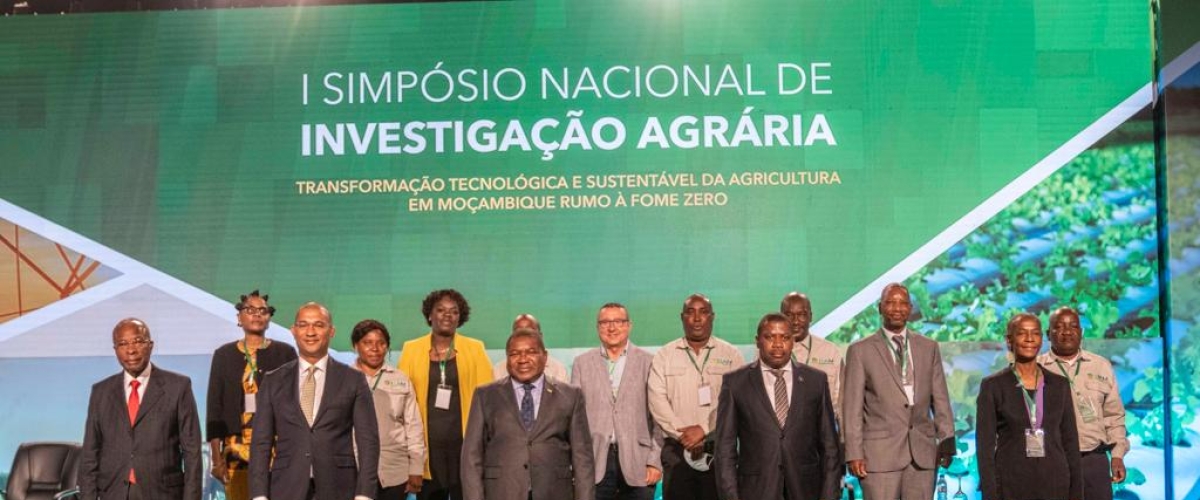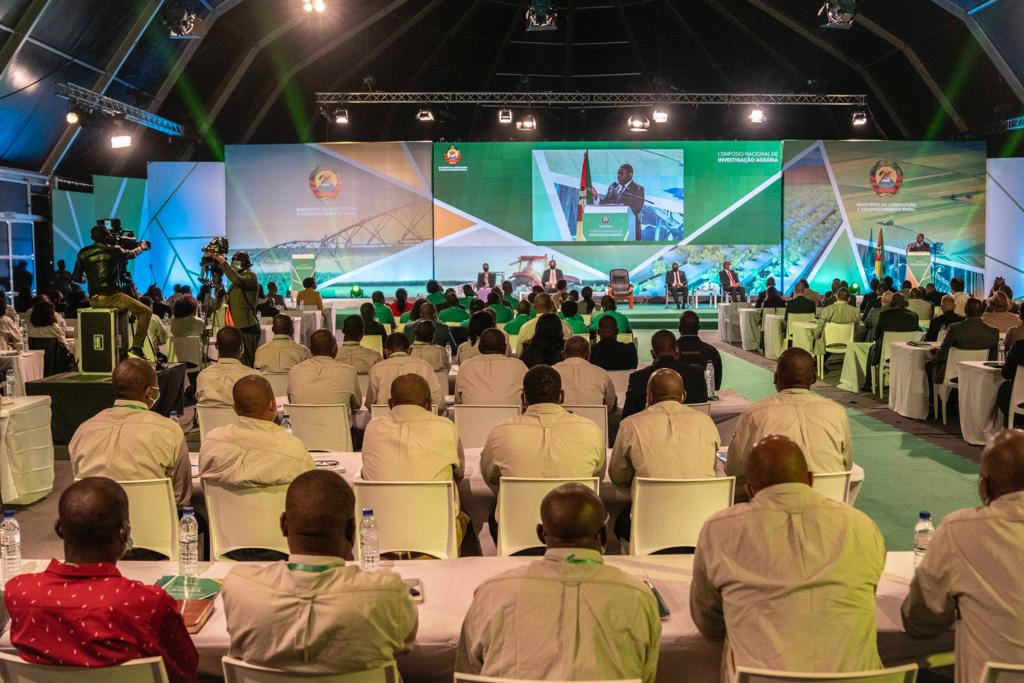
The Government of Mozambique will invest 3 billion meticais (about US$50 million) in agricultural research in the next two and half years. This was announced by the President of the Republic of Mozambique, His Excellency Filipe Jacinto Nyusi in his opening remarks during Mozambique’s first ever “Agricultural Research Symposium” held in Katembe – Maputo from August 31st to the 1st of September 2022. With over 350 participants including high government officials, research organizations, academia, private sector and international partners, the symposium was aimed at facilitating discussions to enable the fast-tracking of technological transformation and sustainable agriculture towards zero hunger in Mozambique.
According to the head of state, the investment will improve the standard of research laboratories and of vaccine production as well as pre-basic and basic seed multiplication fields across the country. It will also support the operationalization of the Regional Center of Leadership (RCoL) on rice and rice-based farming systems which is led by Mozambique to benefit the country as well as the rest of the SADC region. It is worth noting that the Rice RCoL was recently established under the Agricultural Productivity Programme for Southern Africa (APPSA), a World Bank funded initiative which is regionally coordinated by the Center for Coordination of Agricultural Research and Development for Southern Africa (CCARDESA).
The Agricultural Research Symposium was hosted by the Instituto de Investigação Agrária de Moçambique (IIAM), the government’s agricultural research institute under the Ministry of Agriculture and Rural Development, responsible for developing technological solutions to fight hunger and food insecurity which still affects over 30% of the country population.
Over the past few decades, the agricultural research sector in Mozambique has been facing several challenges such as: (1) lack and/or inconsistent allocation of financial resources, (2) low private sector participation and (3) deficient work conditions for scientists.
President Nyusi also indicated that Mozambique has recently concluded a research program that successfully identified high yielding wheat varieties, which are also adapted to the country’s climate conditions. The wheat research results indicate yields of about 7 tons per hectare in Niassa Province and 4 tons per hectare in other regions. The following steps include release and dissemination of this technology and massive seed multiplication as well as training of extension officers and farmers.

Parcial view of the meeting room at Arena 3D, Katembe - Maputo. Photo credit: IIAM





